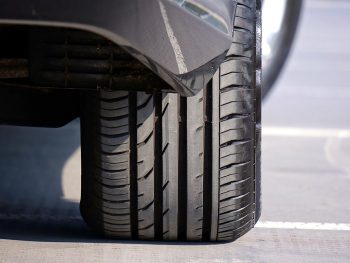Covid to increase requirements for company cars, say large fleets
The coronavirus pandemic and a possible second wave will actually increase demand for company cars to help ensure continuity of service, including during a possible second wave.

A total of 56% of large enterprises anticipate an increase in requirements for company cars
New research carried out for the Driving for Better Business (DfBB) campaign among SMEs and bigger businesses has found 56% of large enterprises anticipate an increase in requirements for company cars. Meanwhile, 47% believe they’ll have increased demand for company vans and 70% of businesses say there’ll be a rise in staff using their own vehicles for work journeys (the so-called ‘grey fleet’).
The research – carried out by Censuswide among 150 business owners of SMEs and more than 150 decision-makers at board level in large enterprises – is the latest to reinforce that fleet will be essential in helping to ensure business continuity. Last month saw the Association of Fleet Professionals (AFP) say that the fleet sector may actually be on the increase as a result of the pandemic. Chair Paul Hollick pointed out that the company car remains a highly effective tool for business – and in many instances, the only viable transport option.
Research published by Alphabet last month has also indicated that there could be a rise in interest for company cars; its survey found more than a third (37%) of employees would now consider using a company car following the pandemic, to enable them to travel safely, whereas prior to lockdown many favoured a cash benefit.
The new DfBB report also shows that Covid-19 is changing the future of work, with just under three-quarters (70%) of large enterprises anticipating an increase in the adoption of working from home practices while less than half (48%) of SMEs expect the same. Visiting, exhibiting, and speaking in person at conferences have been put on hold; more than 40% of SMEs and over 50% large enterprises agree that they will likely see a decrease in event participation.
But changes to staff travel and mobility requirements are just one way that fleets can adapt to meet new challenges; the new research from the DfBB underscores that firms must take action quickly in the current environment to help cope in the current conditions.
The survey reveals two-thirds of UK companies admit they have no plans for a second wave of the virus. Larger firms are slightly better prepared for localised lockdowns (45%) and a second wave (39%) than SMEs, but the figures still represent under half of businesses.
The research also shows Covid-19 business concerns: 42% of all business leaders cited their concerns over rebuilding their business, followed by the pandemic and operational costs (38%), while over a third (37%) are concerned about staff welfare and wellbeing.
Beyond this, 37% of business leaders are concerned about operating profitably within government guidelines and staying in business in the event of another lockdown, with businesses in the West Midlands and the North East of England understandably most concerned about these.
Commenting on the findings, Simon Turner, campaign manager at Driving for Better Business, said that overall, the survey findings showed that business leaders have similar concerns, though those that run SMEs are more concerned than larger enterprises. “Top of mind for business leaders are rebuilding their business and surviving any additional lockdown measures, while managing workforce welfare and mental health,” he continued.
And while experts are divided over economic impact and exactly how badly different sectors could be affected, the survey sample were optimistic on the whole.
“One thing that is certain though, is that firms must adjust quickly to the current environment and take every opportunity to minimise operational costs and improve efficiencies in order to give themselves the best chance of survival, and the ability to thrive as soon as conditions allow,” said Turner.
To access the DfBB report on Better Business Resilience, click here.












